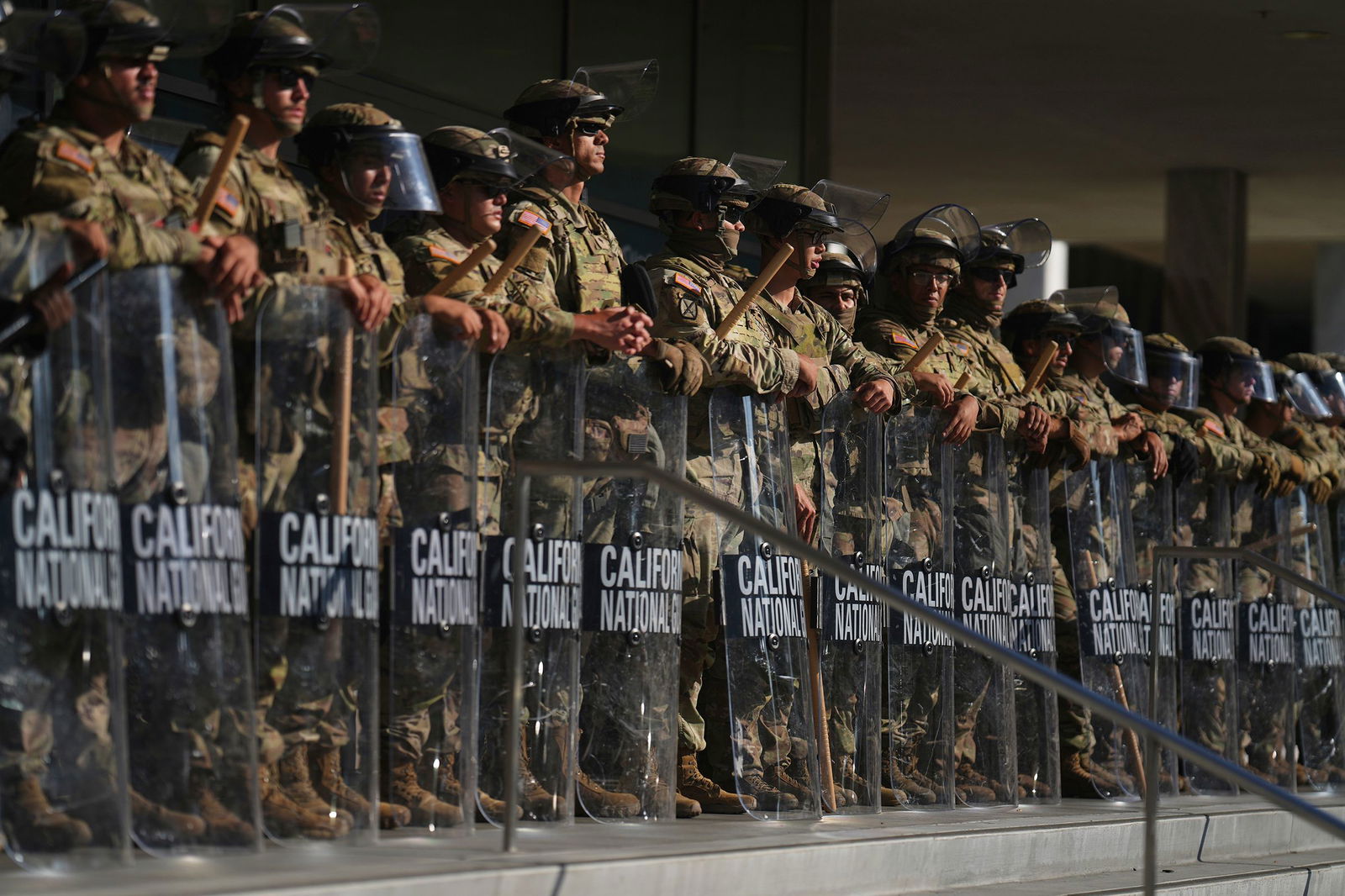Federal judge questions if Trump’s deployment of the National Guard in the Los Angeles area is lawful

California National Guard members are positioned at the Federal Building in downtown Los Angeles on June 10.
By Molly Reinmann, Julia Vargas Jones, CNN
(CNN) — A federal judge in San Francisco seemed unconvinced after a three-day trial that the continued deployment of federalized members of California’s National Guard — who were originally deployed to Los Angeles in response to protests against President Donald Trump’s immigration agenda — is lawful.
US District Judge Charles Breyer specifically questioned Justice Department attorneys on Wednesday on the issue of what limits exist to regulate the use of federal law enforcement to protect federal buildings and employees, as the DOJ alleges is the case with the nearly 300 remaining troops on the ground in California.
“Once you have a force in place, and maybe legitimately do so, and the threat that gave rise to the force in that place subsides, or is no longer of serious concern, what then?” Breyer asked a Justice Department attorney on Wednesday. “How does one look at this national police force, which goes out of where the threat was and starts executing other laws?”
The comments from Breyer came on the final day of a three-day bench trial about how several thousand members of California’s National Guard were used after Trump federalized them in June as dramatic protests unfolded in Los Angeles.
Breyer did not say when he will rule, but his comments Wednesday suggest some sympathy for arguments pushed by California Democratic Gov. Gavin Newsom, who sued Trump in June to block the deployment.
“It’s not that I’m sitting here insensitive to the risk of federal employees,” Breyer, an appointee of former President Bill Clinton, said. “I’m trying to see whether there are limits, any limits, to the use of federal force to ameliorate that risk.”
After scoring an initial win from Breyer in June, Newsom’s case took a significant hit when a federal appeals court said that Trump can maintain control of the federalized troops while the legal challenge plays out, ruling that the president likely acted lawfully.
But a major claim at the center of Newsom’s case remained unaddressed by the two courts: whether the troops violated the Posse Comitatus Act — a 19th century law prohibiting the use of the US military for domestic law enforcement — in the months since their initial deployment.
Justice Department attorney Eric Hamilton argued that there is no mechanism or precedent to challenge the law that Trump used to deploy the National Guard members, but Breyer interrupted him to ask, “What is the likelihood that in England in 1776 there would be an action, law or remedy to restrain the king of England?”
Breyer expressed specific concern that the Justice Department’s logic would open the door to the deployment of federal officers everywhere that the president “determines that there is some threat to the safety of a federal agent.”
Later, an attorney for the state of California, Meghan Strong, addressed the judge’s questions about 1776, citing James Madison.
“What James Madison would have done, and what he did, was to draft a constitution that made sure that the president could never employ standing armies to control civilian life as the King had in 1776,” Strong said.
“And the Posse Comitatus Act is merely a statutory embodiment of a longstanding historical principle and policy in our nation against the use of the military in the way the federal government is using the military here in LA,” she added.
Since June, deployed troops have accompanied federal agents on immigration raids in the LA area and have temporarily detained civilians who tried to enter restricted areas.
Hamilton argued that the federalized guard and Marines were serving a “purely protective function” in California, something not barred by the Posse Comitatus Act.
But Breyer did not seem swayed by this, repeating his concern over the limits of federal law enforcement activity once it is already in place.
“What’s to prevent a national police force, if properly in place as a result of certain things that have happened on day one, to go out on day 10, day 20, day 30, month two, month three, month four and assist the execution of other laws for other crimes?” the judge asked. “Is there any limiting factor at all?”
The-CNN-Wire
™ & © 2025 Cable News Network, Inc., a Warner Bros. Discovery Company. All rights reserved.



